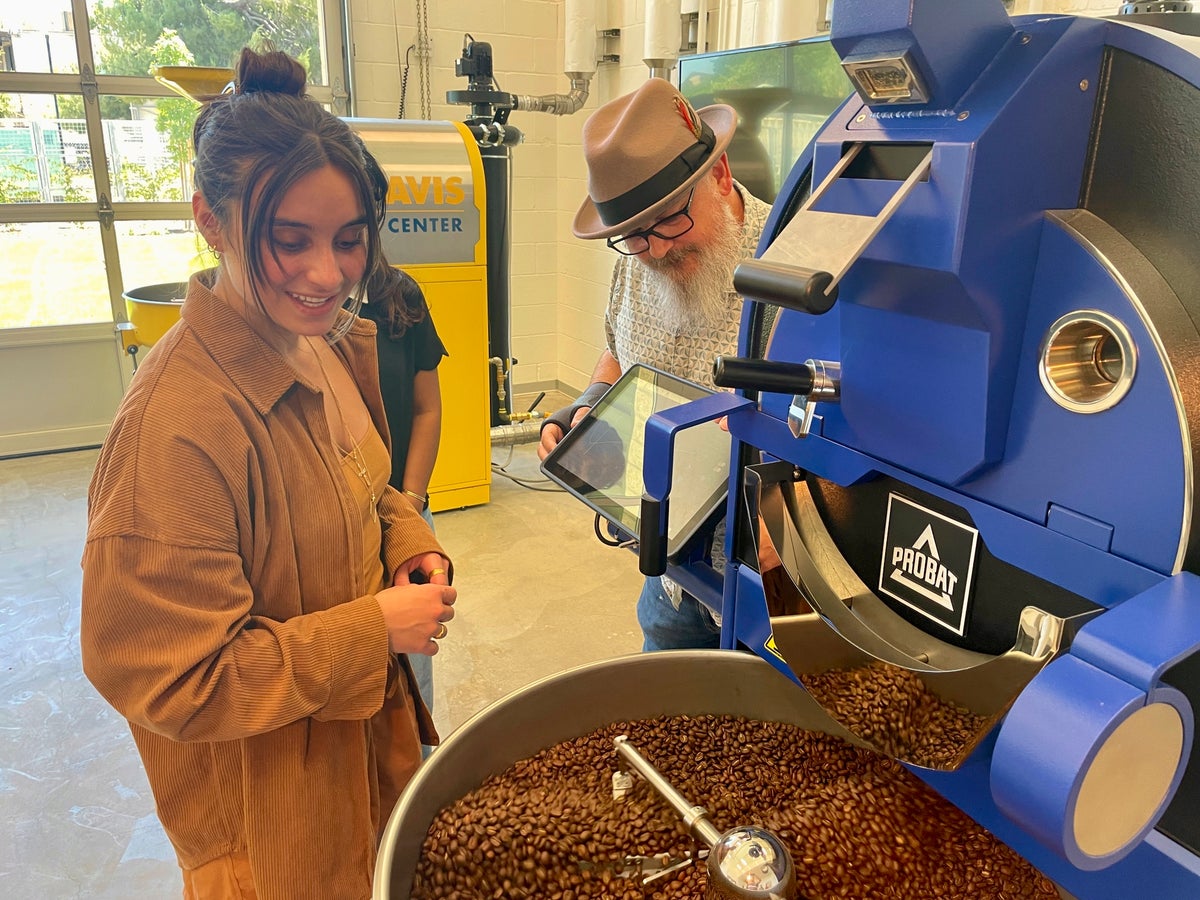
A college in Northern California is now home to a center devoted to educating students and closely studying one of the most consumed beverages in the world known for powering people through their day — coffee.
The University of California, Davis, launched its Coffee Center in May with research focused on providing support for farmers, examining the sustainability of coffee and evaluating food safety issues, among other topics. The launch comes about a decade after the university offered its first course on the science of coffee.
At the center in Davis, which is about 14 miles (22 kilometers) west of Sacramento, Director Bill Ristenpart said historically there has been much more of an emphasis on researching a beverage like wine, and less so on studying coffee.
“We're trying to elevate coffee and make it a topic of academic research and an academic talent pipeline to help support the industry and help support what's arguably the world's most important beverage,” said Ristenpart, a professor of chemical engineering.
Most people in the United States buy coffee that's imported from places including Brazil, Colombia and Vietnam, according to the U.S. Department of Agriculture; however California is one of the few places in the country that grows coffee. The U.S. is the second-largest importer of coffee in the world behind the European Union, the agency says.
UC Davis also has programs focused on researching winemaking and the brewing industries. The 7,000-square-foot (650-square-meter) Coffee Center facility is the first academic building in the nation devoted to coffee research and education, Ristenpart said. It is located in the UC Davis Arboretum near the campus' Robert Mondavi Institute of Wine and Food Science.
Laudia Anokye-Bempah, a graduate student in biological systems engineering, said she wants to research coffee in part “to be able to control how your roasted beans are going to come out to the roaster.”
“We can control things like its acidity level,” Anokye-Bempah said.
There are other U.S. colleges, including Texas A&M University and Vanderbilt University, that have delved into the study of coffee. But the UC Davis Coffee Center stands out in part because it is focused on many aspects of coffee research including agriculture and chemistry, said Edward Fischer, a professor of anthropology and director of the Institute for Coffee Studies at Vanderbilt.
“Coffee is such a complex compound,” Fischer said. “It's really important to bring together all of these different aspects, and that's what Davis is doing.”
Students often come out of Fischer's coffee class viewing the world differently than it is typically discussed in an academic setting, he said.
“In the Western academic tradition, we divide the world up into all these silos, right — biology and anthropology, economics and all that kind of stuff,” he said. “Coffee is a way of showing how all of those boundaries that we draw in the world are really arbitrary.”
Camilla Yuan, a UC Davis alum and director of coffee and roasting at Camellia Coffee Roasters, a coffee shop in Sacramento, visited the Coffee Center in Davis last week, she said.
“Having a center and having resources for folks who are interested in specialty coffee or just coffee world in general, I think is super fascinating and cool,” Yuan said. “I'm glad that something like this is happening.”







